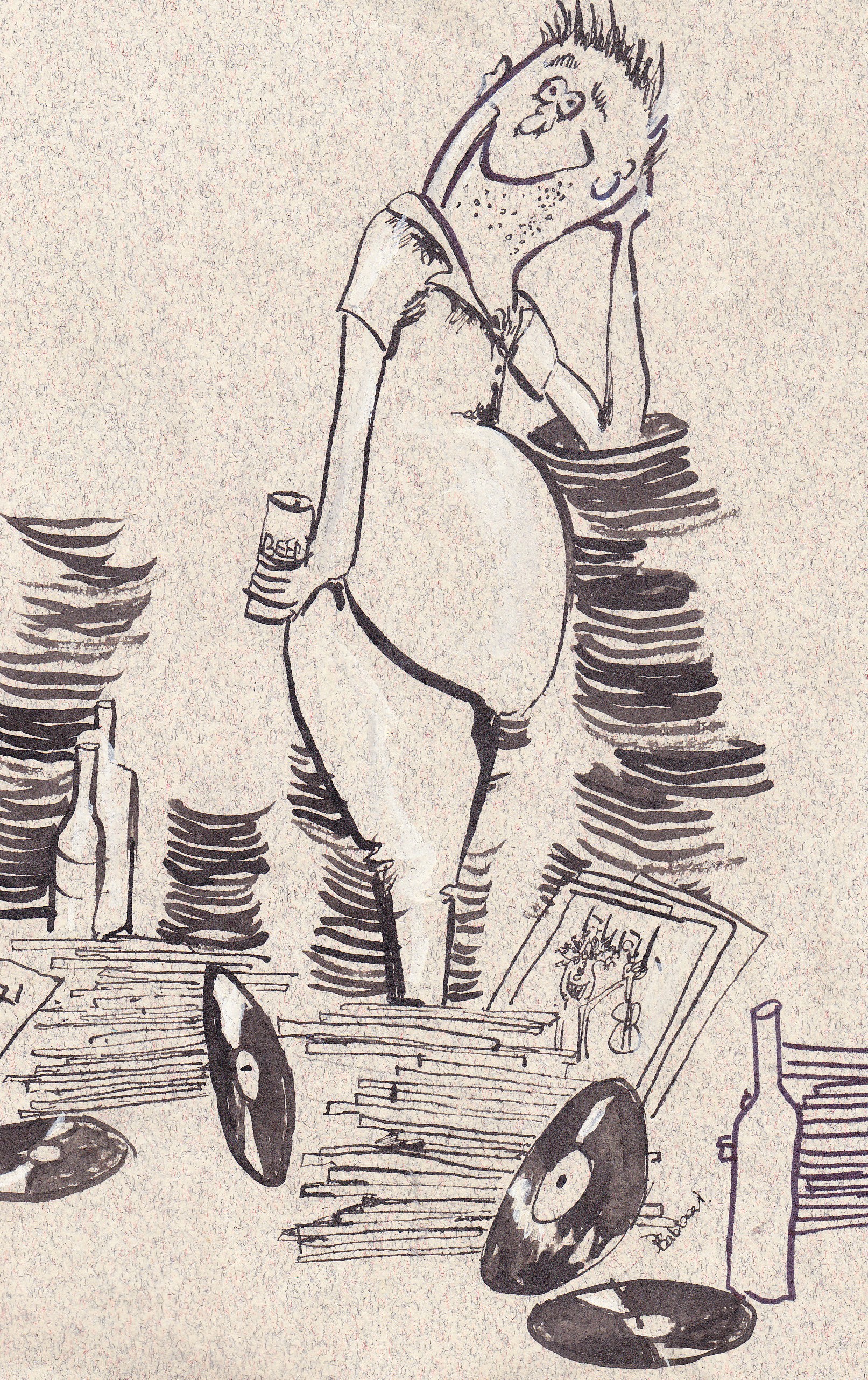The Monkees
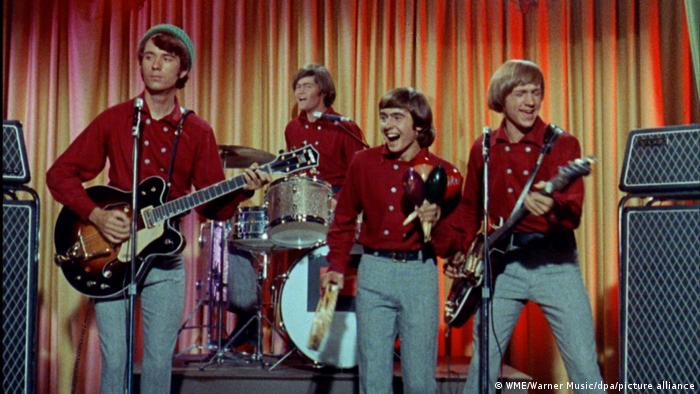
The Monkees started the trend for created bands
The Monkees...who out there can say they are fans of The Monkees? Have you ever met anyone who said their favorite band were
The Monkees? They must be out there as I keep reading that they sold 75
million records!
The Monkees came o Adelaide with much fanfare. They were one
of the many “bigger than The Beatles” bands. So it was announced that security for
the band would be similar to The Beatles security arrangements…….only bigger!
Result? The security and police were far bigger in numbers
than the fans! The concert here in Adelaide were only half full.
They put on a professional show, although the Australian
support band, The Cherokees, were better.
The group was conceived in 1965 by television producers Bob
Rafelson and Bert Schneider for the situation comedy series of the same name
(described by Dolenz as "a TV show about an imaginary band ... that wanted
to be the Beatles ... [but] was never successful) They had seen the success of
The Beatles films “A Hard Days Night” and “Help” and figured a TV series along those lines
could not fail.
The Monkees Formation, and T.V. Success
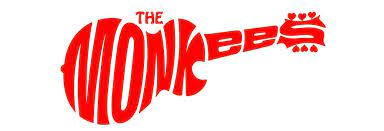
Rather than hire an existing band, (they considered The Lovin” Spoonful for the roll), they went for a group of actors with some musical ability. David Jones, an actor, had no musical background, so was handed a tambourine and told to get with it.
While the sitcom was a mostly straightforward affair, the music production quickly generated tension and controversy. Music supervisor Don Kirshner was dissatisfied with the actor/musicians' musical abilities, and he limited their involvement during the recording process, instead using a stable of professional songwriters and studio musicians to craft multiple hit albums and singles. Upset with the arrangement and facing public backlash for not playing on the recordings, the band members soon gained full control over the recording process. For two albums, the Monkees mostly performed as a group, but within a year, each member was pursuing his own interests under the Monkees name. By the end of 1968, they were once again a group in name only, the show had been canceled, and their motion picture, Head, had flopped. Tork left the band soon after, followed by Nesmith a year later, and the Monkees officially broke up in 1970.
The Monkees, sere designed specifically to appeal to the youth market as American television's response to the Beatles with their manufactured personae and carefully produced singles, are seen as an original precursor to the modern proliferation of studio and corporation-created bands.
They would never outgrow the controversy of being a “Created Band”
The Controversial Monkees
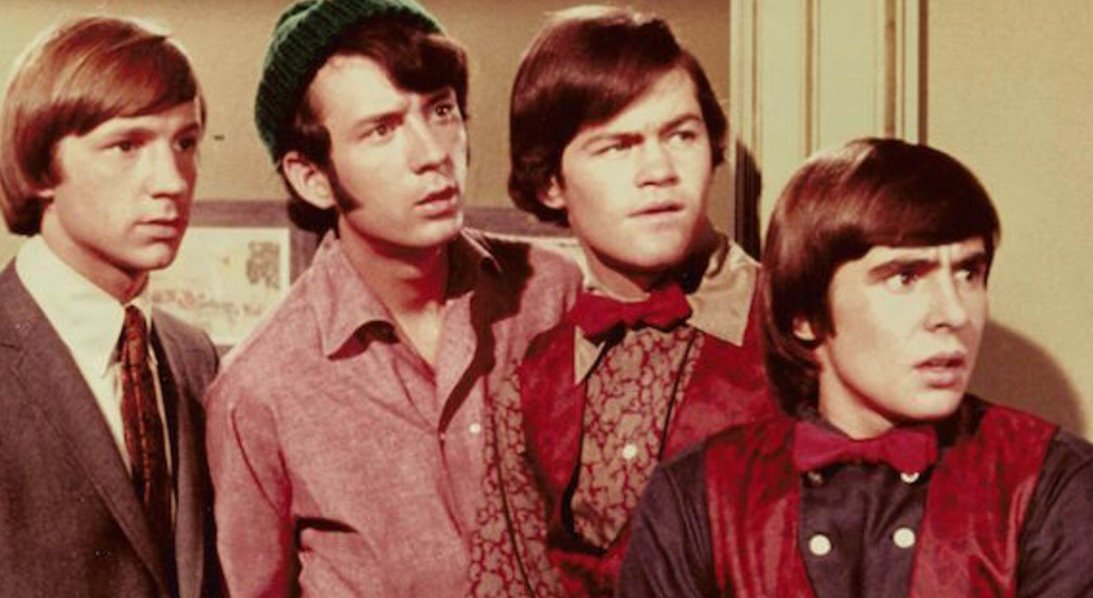 A scene from their TV show, the four Monkees, Peter Toek, Mike Nesmith, Mickey Dolenz and Davey Jones.
A scene from their TV show, the four Monkees, Peter Toek, Mike Nesmith, Mickey Dolenz and Davey Jones.Controversy hit early in 1967 concerning the Monkees' studio abilities. Dolenz told a reporter that the Wrecking Crew provided the backing tracks for the first two Monkees albums, and that he became the drummer because a Monkee couldlearn to play the drums. A January 28, 1967 Saturday Evening Post article quoted Nesmith railing against the music creation process. "Do you know how debilitating it is to sit up and have to duplicate somebody else’s records?" he asked. "Tell the world we don’t record our own music. The truth coming out on themselves worked to force producer Don Kirshner out of the project, and the band took creative control for its third album.
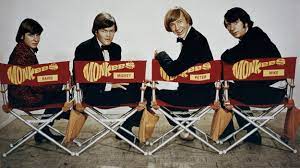 Looking like the big stars they were becoming, The Monkees filming "Head"
Looking like the big stars they were becoming, The Monkees filming "Head"But the Monkees toured the U.K. in 1967 and found a chilly reception. The front pages of several U.K. and international music papers proclaimed that the group members did not always play their own instruments or sing the backing vocals in the studio. They were derisively dubbed the "Pre-Fab Four" and the Sunday Mirror called them a "disgrace to the pop world".
In November 1967, the wave of anti-Monkees sentiment was reaching its peak while they released their fourth album, Pisces, Aquarius, Capricorn, & Jones Ltd.
The liner notes for the 1995 re-release of this album quote Nesmith: "The press went into a full-scale war against us, talking about how 'The Monkees are four guys who have no credits, no credibility whatsoever and have been trying to trick us into believing they are a rock band.”
Rolling Stone reported on October 11, 2011, that Tork believed the Monkees did not receive the respect they deserve. "The Monkees' songbook is one of the better songbooks in pop history", he said. "Certainly, in the top five in terms of breadth and depth. It was revealed that we didn't play our own instruments on the records much at the very moment when the idealism of early Beatlemania in rock was at its peak. So we became the ultimate betrayers”
Mike Nesmith met with success with his First national Band, and died of heart failure December 10, 2021.
Peter Tork died of cancer in February 2019, and Jones died February 29 2012
The Monkees Vinyl
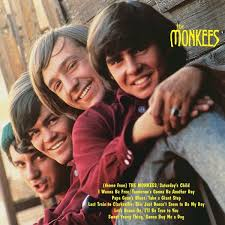
The Monkees is the first album released under the Monkees name, and sold over 5 million copies! Apart from the vocals by Peter, Michael and David, the band had nothing to do with the music, although Mile Nesmith wrote and sang "Papa genes Blues". 12 tracks include the theme from the T.V. series, and the single "Last Train To Clarksville". The album went to No. 1 in the U.S., where it stayed for 13 weeks! It was then replaced by their second album, "More of The Monkees"
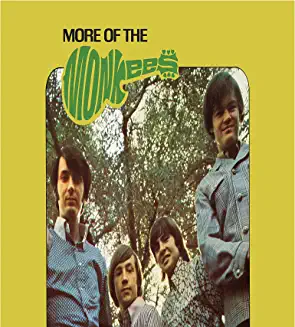
s the bands second album. It came out in January 1967, replacing the bands first album at No. 1 on the Billboard charts. There it stayed for 18weeks! The longest of any Monkees albums.
Enjoy this site? Share with friends!
